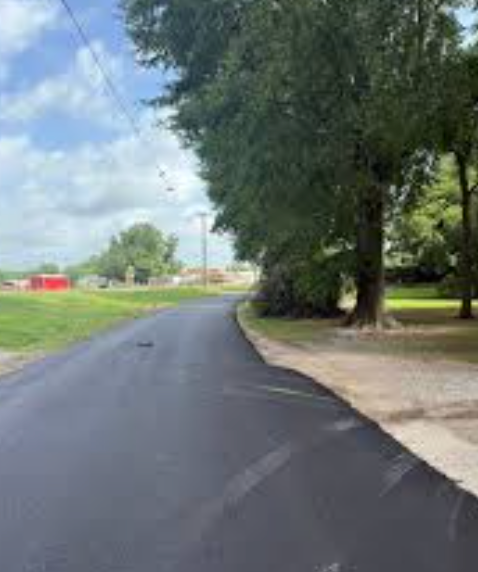Roads, resolutions and red flags

Police Jury clarifies funding confusion, approves payment, and sets new oversight measures
The Avoyelles Parish Police Jury has moved to correct funding and documentation issues raised earlier this month after confusion at its Oct. 14 meeting revealed that several road projects had advanced without clear, voted resolutions identifying their funding sources.
The initial concern centered on a $977,000 invoice from Diamond B Construction for parish road work. Jurors determined that while some of the projects were financed through state House Bill funds, other portions were expected to be paid from State Capital Outlay and Road and Bridge matching funds. Not all those allocations had been approved in formal resolutions.
Funding confusion identified on Oct. 14
At the Oct. 14 meeting, parish staff advised jurors that payments could not be issued until the funding record for each project identified the exact source of money. The parish secretary-treasurer reminded the board that Louisiana law requires contractors to be paid within 45 days of project completion, but only after payments are properly authorized.
The parish attorney added that each project should have its own resolution naming the road, total cost, and account to be charged. Without those documents, the funding record remained incomplete.
As a result, the Police Jury voted to table the payment to Diamond B Construction and scheduled a special meeting to reconcile all accounts. That session was intended to create a detailed funding matrix identifying which projects were paid through Treasury funds, which relied on Capital Outlay, and which required a 25 percent local match from Road and Bridge.
Several members noted that the issue could appear in next year’s legislative audit if not corrected. Missing or inconsistent documentation can lead to audit findings or delays in reimbursement from the state. Officials said the goal was to have all records corrected before the fiscal year ended.
Debate over added oversight
Also at the Oct. 14 meeting, juror Travis Franks proposed creating a Capital Projects Committee to review any project over $50,000 before it reaches the full jury. The proposed committee would have included the chairmen of Finance, Roads and Bridges, Personnel, and Permits.
Supporters said the committee would increase oversight and ensure projects were reviewed and documented before funding votes. Opponents said it would duplicate existing committees and exclude the jury president, who traditionally serves on all panels.
When the vote was taken, three members voted in favor — Travis Franks, Sam Pearce, and Alan Thomas — and four voted against — Ingrid Wilson, Clyde Benson, Darrell Wallace, and Jacob Coco. The motion failed.
The Police Jury did, however, approve a separate measure requiring all future bids to be opened publicly at the courthouse and read into the record. Members said the change would ensure transparency and proper documentation of procurement actions.
Clarifications and corrective actions on Oct. 21
At the October 21 regular morning meeting, the Police Jury revisited the funding issues and took several steps to resolve them. President Darrell Wiley opened by acknowledging confusion about the appropriations and emphasized the importance of improving accuracy and procedure moving forward. He also voiced support for forming a Committee for Capital Improvements, calling it a valuable practice for accountability.
Juror Travis Franks again noted that Capital Outlay appropriations had not been voted on by the jury and said that several funding reports contained different figures. He stated that all future projects should be presented to the board for approval before work begins to ensure compliance and transparency.
State Representative Daryl Deshotel attended the meeting to explain the funding process for Treasury and Facility Planning appropriations. He told jurors that Treasury allocations are project-specific and must be spent entirely on the listed roads. Any deviation from the designated use requires legislative approval, and combined invoices cannot be submitted for multiple projects.
Following discussion, the jury voted unanimously to authorize payment of Diamond B’s Request #1 for $977,076.90, less retainage of $51,425.10. Voting in favor were Travis Franks, Mark Borrel, Jacob Coco, Sam Pearce, and Allen Thomas. None voted against, and jurors McKinley Keller and Ingrid Wilson were absent.
Other business at the Oct. 21 meeting
The board also discussed an incident involving the Department of Veterans Affairs office located at the LSU Ag Center. Various relocation options were considered, though some were deemed infeasible due to uncertain rental costs and their potential impact on the general fund. The jury agreed to continue exploring other locations.
Later in the meeting, members voted to approve new Capital Outlay funding requests for 2026, authorizing Juror Travis Franks to submit the applications. The approved requests included:
- Village of Hessmer Improvements, $100,000 (Franks)
- Equipment for Fifth Ward Fire Department, $50,000 (Franks)
- Animal Shelter, $350,000 (Pearce)
- Truck and Boat with Trailer for Simmesport Fire Department, $300,000 (Coco)
- Handicap Park, $200,000 (Thomas)
- Roadway Improvements, $2,000,000 (Borrel)
- Skid Steer for Parish Maintenance, $115,000 (requested by Civil Works Director Kevin Bordelon)
All motions passed unanimously, with Keller and Wilson absent.
How a Home Rule Charter could improve oversight
Avoyelles Parish voters will consider a Home Rule Charter on April 18, 2026. If approved, the new structure would replace the current police jury system with an elected parish president and parish council.
Under a charter system, executive and legislative powers are separated. The administration would prepare and certify project documentation, budgets, and funding sources before presenting them to the council for approval. Supporters of the proposal say the change would strengthen accountability, prevent spending discrepancies, and reduce the risk of future audit findings.
Next steps
The Police Jury’s next meeting will focus on finalizing resolutions for each road project, confirming all matching funds, and ensuring payments are consistent with state and local requirements. Officials said the ongoing review aims to ensure that financial records match completed work and that all future capital projects follow consistent procedures for budgeting, contracting, and approval.

Comments ()